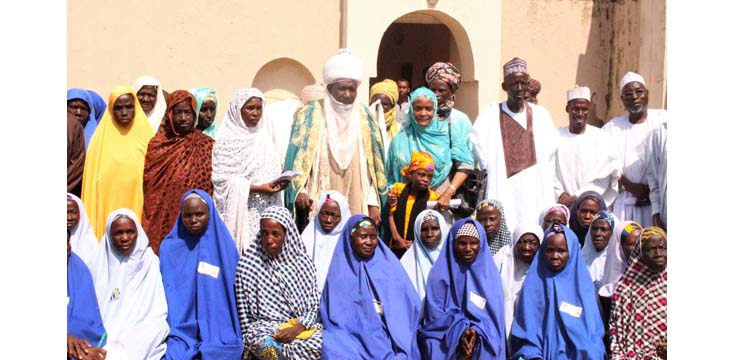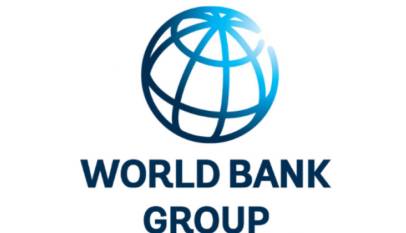When dRPC-KECCoHD went on community sensitization outreaches
Since when KECCoHD commenced its intervention in Kano’s health sector, the state has continued to record gigantic strides in terms of access to healthcare for women and children including access to routine immunization for children. RI coverage has grown from barely 32% to over 73% in under a year and for now over 60 consecutive months, not a single case of polio virus has been recorded in the state.

Since its inception, Kano Emirate Council Committee on Health and Development (KECCoH) has been working with the development Research and Projects Centre (dRPC) to strengthen access to maternal and child healthcare services including routine immunization as well as ensuring improved environmental hygiene in rural communities across Kano state.
By leveraging KECCoHD’s Community Women and Child Survival System (COMWACSS) whose membership cuts across all members of the community including Traditional Birth Attendants (TBAs), Imams, and other community members, dRPC’s partnership with KECCoHD is reaching even the remotest communities with critically-important information regarding child and maternal healthcare as well as improving access to education for girls.
While speaking during a recent community outreach in Karaye LGA, Dr Sha’awa Khalil, the chairperson of KECCoHD’s technical subcommittee said the idea behind the outreach was to sensitize, educate and get community stakeholders at LGA level – village and ward heads, imams, health workers as well as school teachers – to support the Committee’s work.
“This committee is working to complement the efforts of the Kano State Ministry of Health and the Kano State Primary Health Care Development Agency in the areas of community sensitization. This has resulted in efficient and effective partnership between the government at LGA and ward levels on one hand and the Kano Emirate on the other hand, which is improving healthcare delivery in the state,” said Dr Shaawa.
She said the Emir of Kano, Malam Muhammadu Sanusi II was really worried about the indices of infant children living with malnutrition in the north west region including Kano due to lack of access to nutritious foods for pregnant women and nursing mothers as well as not ensuring exclusive breastfeeding for infant children which she said was critical in achieving a healthy and productive society.
“Furthermore, research has shown that there is a strong link between improved health for women and their children and their level of education, Western and Islamic. This is why we are calling for increased access to education for the girl child. We are also aware of the dearth of female health workers in our healthcare facilities. We can only address this gap in the nooks and crannies of the state by educating our girls and giving them the opportunity to study health related courses,” she said.
In a written speech read by the District Head of Karaye Alhaji Ibrahim Abubakar, Emir Sanusi II said the Kano area was blessed with rich and fertile agricultural land as well as water resources for rain-fed and irrigation farming, for which reason he said the people must ensure women and children were properly fed to guard against malnutrition.
“There are various methods of processing food which are found to be efficient and which if followed, the body gets a lots of nutrients from the food. For this, we are calling on government’s agricultural development officers and nutritionists to begin sensitization campaigns across all the nooks and crannies of the state so as to address the challenge of malnutrition bedeviling our region,” wrote Emir Sanusi II.
While delivering goods will message at the event, Ubale Rano, dRPC’s representative at the event thanked the Emir of Kano for involving his organization in his quest to improve access to quality maternal and child healthcare amongst women and children in Kano state.
“The involvement of village and ward heads has greatly improved access to healthcare for women and children including access to Routine Immunization in Kano state. It is now 60 months since the last case of polio was recorded in Kano state; this couldn’t have been possible without the support of the Kano State Government and the Kano Emirate including district, village and ward heads,” said Rano.
Earlier on, while speaking on the important role diet plays in the growth of children at a similar community sensitization event at Tudun Wada LGA, Dr Salisu Maiwada, Chairman of the Kano state chapter of the Nutrition Society of Nigeria, described nutrition as very important for the healthy growth of children – from three weeks after conception through the first 1000 days of their lives.
“Women should have access to nutritious foods right from when they become pregnant, beginning from the first 3 weeks of their pregnancy up to when their children attain the age of two; exclusive breastfeeding for the first six months of the baby’s life is also important. The good thing is that nutritious foods are locally available across our communities; hygiene is also very important,” said Dr Maiwada.
Hassana Kibiya is the assistant family planning officer in Kano state who urged women to space their births by at least two years so as to give their children the opportunity to grow into healthy adults adding that men’s support was very critical in ensuring women have access to Child Birth Spacing (CBS) services.
“Just like ANC services, CBS services are also available and free across all public health facilities in the state including PHCs. And there are various forms of contraceptives available such as pills, injections, diaphragms and implants, however, women should always consult experts at healthcare facilities before adopting any of these forms of contraceptives,” said Kibiya.
The Kano State Commissioner of Health, Dr Kabiru Ibrahim Getso, who was represented at the event by Dr Nura Idris, executive secretary of the Kano State Healthcare Trust Fund (KHETFUND) described safeguarding women’s and children’s health as critical for the development of all societies hence the establishment of the healthcare trust fund in the state.
“KHETFUND is aimed at improving healthcare delivery including the training of healthcare workers in the state. Under the Fund, we are coming up with a scholarship programme under which we will fund a Foundation Year Programme (FYP) for selected girls who have graduated secondary school but do not have the requisite qualification to join the various healthcare training institutions in the state. This will help increase the number of female healthcare workers in the state,” said Dr Idris.
Since when KECCoHD commenced its intervention in Kano’s health sector, the state has continued to record gigantic strides in terms of access to healthcare for women and children including access to routine immunization for children. RI coverage has grown from barely 32% to over 73% in under a year and for now over 60 consecutive months, not a single case of polio virus has been recorded in the state.












